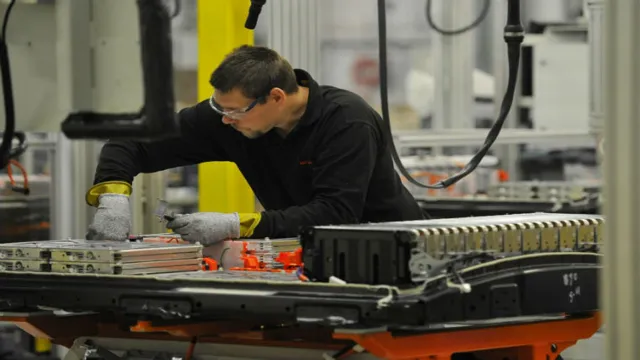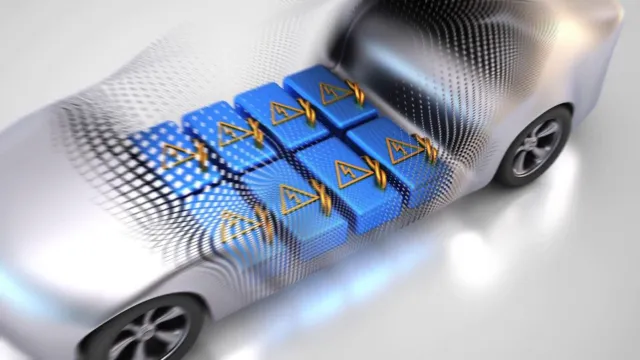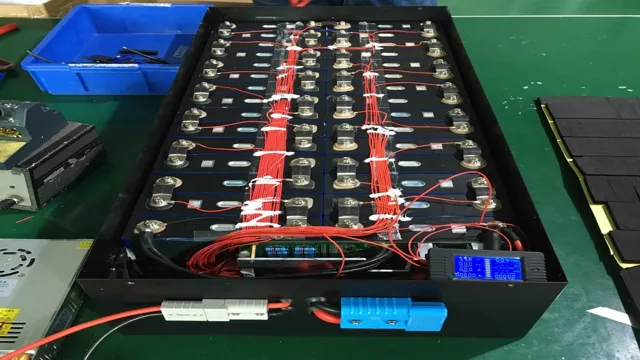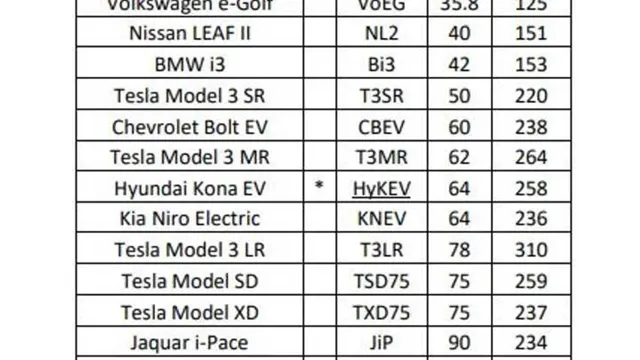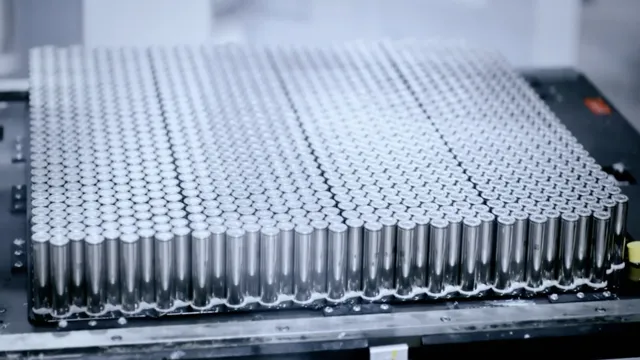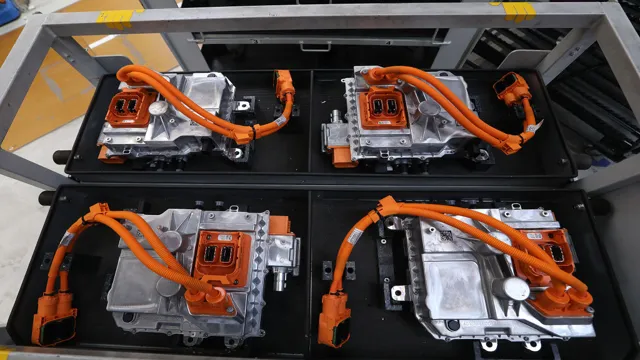Revolutionizing the Future: The Latest Breakthroughs in Electric Car Battery Technology
Electric cars have been touted as the future of transportation, but the question remains: how can they become more efficient and practical? The electric car battery may hold the answer. Battery technology has been improving rapidly in recent years, unlocking new potentials for electric vehicles to revolutionize the transportation industry. With cutting-edge innovations, electric car batteries can now travel longer distances and charge faster, making them a viable option for longer commutes and travel.
In this blog, we’ll explore how electric car battery technology is changing the game, what different types of batteries there are, and what the future may hold for electric cars. Join us as we dive into the exciting world of electric car batteries!
Understanding Electric Car Battery Technology
Electric car battery technology has come a long way in recent years and is changing the way we think about transportation. Instead of using traditional fossil fuels, electric cars utilize rechargeable batteries, which can get power from a charger plugged into an external source or from regenerative braking. Most electric car batteries use lithium-ion technology, which is known for its energy density, capable of holding more power in smaller and lighter packages.
Compared to gasoline-powered cars, electric cars have a lower environmental impact and can save drivers money on fuel costs. Electric cars can also offer a smooth, quiet ride, and with advancements in battery technology, they can go longer distances before needing to be charged. With the continued development of electric car battery technology, the future looks bright for cleaner, more efficient transportation.
Types of Electric Car Batteries
Electric car batteries come in different types, each with its unique properties and advantages. The most common types of electric car batteries are Lithium-ion (Li-ion), Nickel-Metal Hydride (NiMH), and Lead-Acid. Li-ion batteries are the most popular type used in electric vehicles due to their high energy density, long lifespan, and quick charging capabilities.
They use a chemical reaction between lithium ions and cathodes to produce energy, providing high performance and reliability. On the other hand, NiMH batteries are a less expensive alternative to Li-ion batteries, but they have a lower energy density and shorter lifespan. Lead-Acid batteries, although rarely used in modern electric cars, are simple and cheap, but they also have a shorter lifespan and require more maintenance.
Understanding the type of battery in your electric car is essential because it affects the vehicle’s range, efficiency, and overall performance.
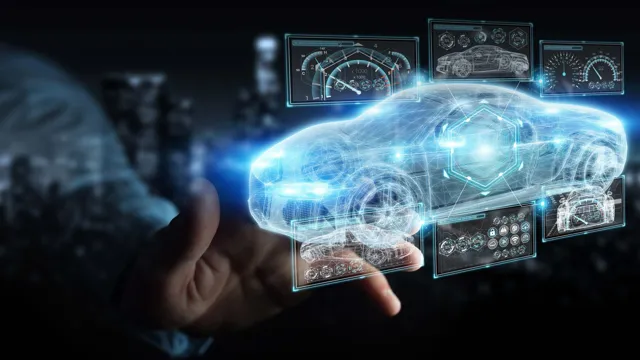
Advantages of Electric Car Batteries
Electric car batteries have become a hot topic in recent years, as more people are switching to electric vehicles. The advantages of electric car batteries are numerous. For starters, they are much more environmentally friendly than traditional gasoline-powered engines.
They produce zero emissions and are much quieter, making them ideal for urban driving. Additionally, electric car batteries can be charged at home, making them much more convenient than gas-guzzling cars that require trips to the gas station. Another advantage is that electric car batteries require very little maintenance, and with fewer moving parts, they are less likely to break down.
Overall, electric car batteries offer a reliable, sustainable, and cost-effective option for drivers looking to reduce their carbon footprint.
The Future of Electric Car Battery Technology
Electric car battery technology is advancing at a rapid pace, and the future looks incredibly promising in terms of the efficiency, range, and cost of these vehicles. One of the most exciting developments in electric car battery tech is the emergence of solid-state batteries. These batteries are smaller, lighter, and offer a much longer range than traditional lithium-ion batteries.
They are also safer and less prone to overheating, making them ideal for use in electric cars. Additionally, research is underway to develop batteries that can be charged in just a few minutes, further eliminating range anxiety and making electric cars even more convenient to use. With these advancements, we can look forward to a future where electric cars are the norm, and we no longer have to rely on gas-guzzling vehicles.
Electric car battery technology is the key to a cleaner, greener, and more sustainable future, and it’s something that anyone who cares about the environment should be excited about.
Trends in Electric Car Battery Technology
Electric Car Battery Technology The future of electric car battery technology seems promising as the pace of innovation in this field is accelerating. One of the emerging trends is the use of solid-state batteries, which offer higher energy density and longer lifespan than traditional lithium-ion batteries. Solid-state batteries are also safer, as they are less prone to overheating and explosion.
Moreover, researchers are working on improving the charging time and reducing the weight of electric car batteries, which will make them more practical for everyday use. For instance, some battery manufacturers are experimenting with silicon-based anodes and graphene-based cathodes, which can increase the energy density of batteries and reduce charging time. Another promising technology is wireless battery charging, which allows electric cars to be charged while in motion, similar to how wireless charging works for smartphones.
Overall, the future of electric car battery technology looks bright, and we can expect more breakthroughs in the coming years.
Innovations in Electric Car Battery Technology
The future of electric car battery technology is looking bright, with numerous advancements and innovations on the horizon. One of the most significant advances is the development of solid-state batteries. These batteries use a solid electrolyte instead of a liquid one, which makes them more efficient, longer-lasting, and safer than current lithium-ion batteries.
Solid-state batteries also have a higher energy density, which means they can store more energy in a smaller space. Another promising technology is the use of silicon anodes instead of graphite ones. Silicon can hold ten times more lithium ions than graphite, which means that batteries with silicon anodes could potentially have a much higher energy density than current batteries.
Finally, researchers are exploring the use of flow batteries, which store energy in liquids that flow through the battery. These batteries are particularly well-suited for use in electric vehicles because they can be quickly recharged by replacing the fluid, rather than having to recharge the entire battery. With these and other innovations in the works, the future of electric car batteries looks very bright indeed.
Impact of Electric Car Battery Technology on Environment
The future of electric car battery technology is highly dependent on the impact it has on the environment. As we move towards a greener tomorrow, the need for sustainable solutions that do not harm the planet has become ever more vital. Electric car batteries have emerged as a viable alternative to conventional fuel-based engines as they significantly reduce carbon emissions.
The advancement in the technology behind these batteries holds the key to unlocking the full potential of electric cars. From increased driving range to faster charging times, the future of electric car battery technology looks bright. Furthermore, the manufacturing process for electric car batteries is becoming greener, with the use of recycled materials and sustainable practices.
We are on the cusp of a green automotive revolution, and electric car battery technology is playing a crucial role. With constant innovation, the impact on the environment will be further reduced, making electric cars an increasingly attractive proposition. The time is now to embrace a cleaner and sustainable future, and electric car batteries are leading the way.
Choosing the Right Electric Car Battery Technology
When it comes to choosing the right electric car battery technology, there are several factors to consider. The most common types of batteries on the market are Lithium-ion and Nickel Metal Hydride (NiMH). Lithium-ion batteries are the latest and most popular tech, offering high energy density and relatively long life spans.
They are also lightweight and compact, making them ideal for use in electric cars. NiMH batteries, on the other hand, are larger and heavier than Lithium-ion batteries, but they are cheaper and more durable. The choice between these two battery types ultimately comes down to your specific needs, such as range and cost.
Additionally, some manufacturers are experimenting with new solid-state battery technology, which promises even higher energy density and longer life spans. Regardless of which technology you choose, it’s important to do your research and choose a reliable, reputable brand to ensure the best performance and safety for your electric vehicle.
Factors to Consider Before Choosing Electric Car Battery Technology
Electric Car Battery Technology When it comes to choosing the right electric car battery technology, there are a few factors that you need to consider before making your choice. First and foremost, you need to consider the range of the battery. The range will determine how far you can travel before needing to recharge, so it’s important to choose a battery that suits your needs.
Secondly, you need to consider the charging time of the battery. If you travel long distances frequently, you may want to choose a battery that can be charged quickly. Thirdly, you should consider the price of the battery.
Electric car battery technology can be expensive, so you need to decide what you’re willing to spend. Lastly, you need to keep in mind the environmental impact of the battery. Opting for a battery that is eco-friendly can have a positive impact on the environment, so it’s something worth considering.
With these factors in mind, you can make an informed decision about which electric car battery technology will work best for you.
Cost vs Efficiency: Balancing Out your Needs
When it comes to electric car battery technology, there are two main options: cost-based and efficiency-based. Cost-based technologies use cheaper materials and production processes, resulting in a lower price tag for the consumer. On the other hand, efficiency-based technologies prioritize performance and range, often using more advanced materials and manufacturing techniques.
So, which one is right for you? It ultimately depends on your individual needs and budget. If you’re constantly on the go and require a lot of range, an efficiency-based battery might be the better choice. However, if you’re on a tight budget and don’t need a lot of range, a cost-based battery could be more suitable.
Remember to weigh the pros and cons of each option before making a decision and consult with a professional to ensure you’re choosing the right electric car battery technology for your specific needs.
Conclusion: The Bright Future of Electric Car Battery Technology
In conclusion, electric car battery technology is the perfect example of how innovation and sustainability can coexist. With advancements in materials science and manufacturing processes, we are now able to create batteries that not only provide efficient energy storage but also have the potential to be recycled and reused for future applications. It’s time to ditch our gas-guzzling, environmental-degrading cars and drive into a cleaner and brighter future with electric vehicles powered by the latest battery technology.
So let’s change gears and embrace the electrifying revolution!
FAQs
What is electric car battery technology?
Electric car battery technology involves the use of rechargeable batteries that power the electric motor in an electric car.
How long do electric car batteries last?
The lifespan of an electric car battery depends on various factors, including the battery chemistry, usage patterns, and climate. However, most electric car batteries are designed to last for 100,000 miles or more.
Can electric car batteries be recycled?
Yes, electric car batteries can be recycled. The recycling process involves extracting the valuable metals, such as lithium and cobalt, from the used battery and using them to make new batteries.
How fast can electric car batteries be charged?
The charging time of an electric car battery depends on the battery capacity, the charging speed, and the charging infrastructure. In general, it can take anywhere from 30 minutes to 12 hours to fully charge an electric car battery.
